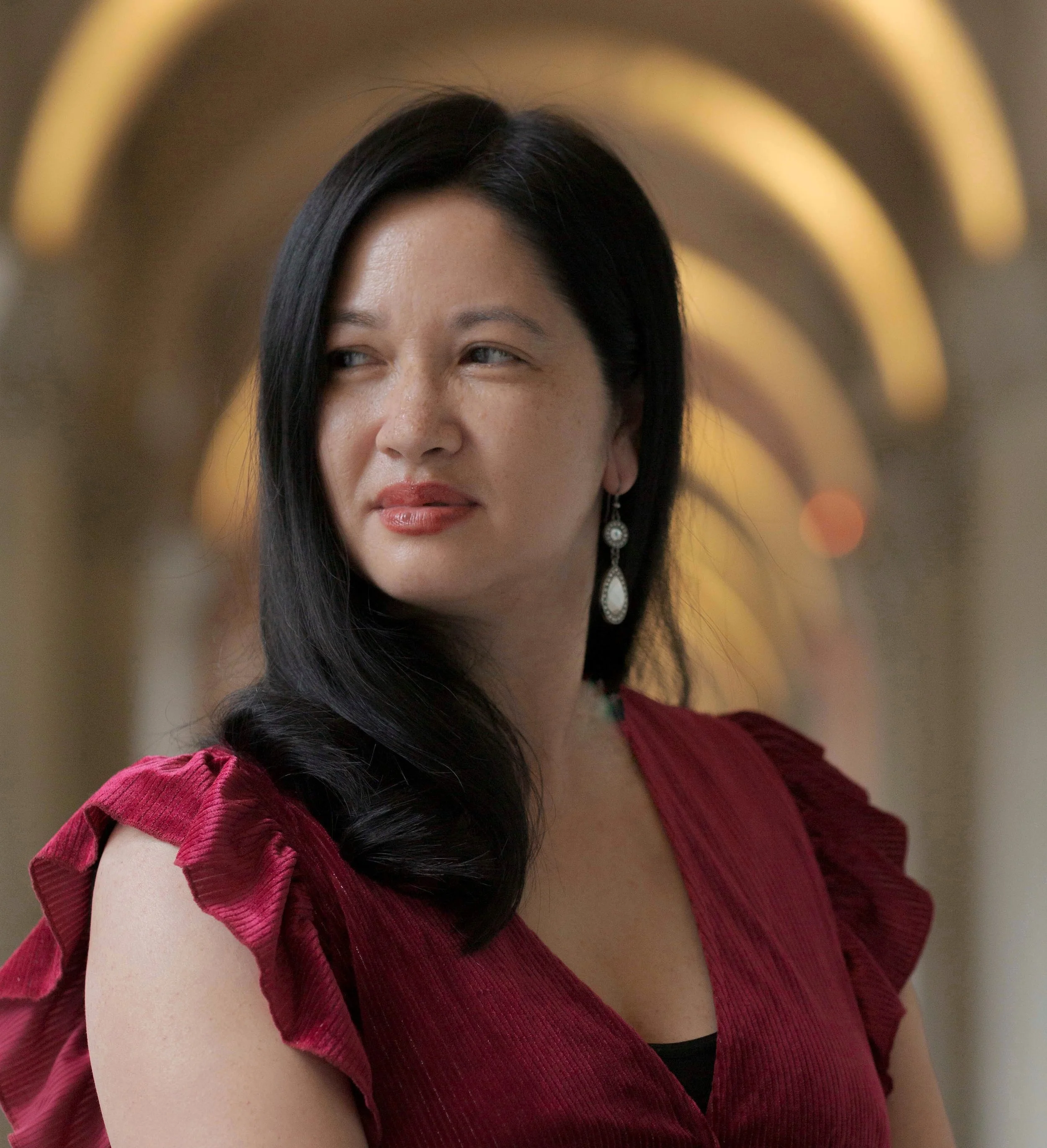5 Questions with Thuy On
Thuy On is the Reviews and Literary Editor of ArtsHub. She is an arts journalist, critic, editor and poet.
Turbulence was her debut collection of poetry published by UWA Publishing in 2020. Her second collection of poetry Decadence was published by UWA Publishing in 2022 and was longlisted for the 2023 Stella prize.
Her third book Essence was published by UWA Publishing in 2025. Thuy will be appearing at Perth Poetry Festival (Aug) and OzAsia Festival (Nov).
No.1
What was your first memory of writing a poem, be it for publication or otherwise?
My very first memory was in primary school. I would’ve been maybe 10 then? I remember trying very hard to make every line rhyme because that’s what I thought poetry should be: colouring within the lines. It was much later that I started playing around with the parameters. Most of my poetry now is free verse. Occasionally, there is rhyme but I am much more interested in freedom of expression than adhering to any strict pentameter beat or trying to squeeze emotions into any set, didactic formula.
No.2
Essence is your third book of poetry, after Turbulence (2020) and Decadence (2022). Do you see the books as speaking to each other, a trilogy of sorts? How do you think your writing process has evolved during this time?
They were never meant to be a trilogy, but after Essence’s publication in February of this year, I looked back and realised that yes, they do actually talk to one another. All three collections survey love, loss and language, in varying permutations and combinations.
As for my writing process, I think that with each book I move a little bit further away from my personal life. I am working on my fourth collection now, and at least a portion of it will be more far-ranging and feminist than exploring the quasi-confessional first person.
No.3
You’re also an arts critic, as well as the reviews editor at ArtsHub. As both an author and an editor, how do you think of the collaborative process between the two roles?
Wearing all these different hats can be exhausting, but also liberating because I am just not one thing, but all of them. So I can move from one to the other without becoming bored. Writing criticism, editing and composing poetry are all different variations of playing with words, but each one flexes a different muscle. I am a better editor and critic because I am a poet and vice versa. Each discipline requires you to be clear and concise. You cannot waffle as a poet; editing means cutting out extraneous flourishes and criticism’s purpose is to point out the pleasing sights and potholes, so you have to have a strong sense of direction.
No.4
Your poems tend to be evocative in the way they deeply explore language. Can you talk about your relationship to failure in this context? When you end up writing a ‘bad’ poem, what’s that like and how do you deal with it?
When it comes to poetry, I am a quick writer, both with the idea and the composition. The editing and tweaking come later. Like all writers, I have often returned to a previous (published) work and thought, ‘Damn, I wish I’d written it differently’ but I don’t see that as a failure. For me, poetry is an attempt to capture a moment in time, and years later I may not feel the same about a particular incident, but back then it was what I genuinely felt, so I have to honour that.
If I feel that a poem is not working, no matter how hard I try to tinker with it, I abandon it. Sometimes forever, sometimes for a short spell, and then returning to it when I am in a different frame of mind. Hopefully then I can wrangle it into something that I am happy with.
No.5
You’ve been writing for a few decades, and can be considered a pioneer for many of us women of colour critics and writers. I know I have brought up the longform interview before, but it remains relevant. There, you said that ‘it’s encouraging now to see so many Asian Australians making waves in the industry. I felt quite lonely when I started out’. How do you feel about the landscape now? What do you think has changed, and what do you think requires more work?
I am so much more gratified that today, years later than when I first started as a critic in my 20s, there are so many more POC writers across the board: as poets, essayists novelists, actors and so forth. There’s a feeling of collegiality with the chorus of Asian Australians in the literary and wider arts landscape. There’s always, always more work to be done but there is power in numbers.
I’d like to quote my poem, ‘Blackheads’ (in Essence) because I think that can explain it better.
Blackheads
Yellow peril is spreading
blackheads across the white face
difficult to exfoliate stubborn grit
can you smell the tiger balm?
we are infiltrating smashing down
gates hoarded by keepers of industry
one splinter at a time.
So yes, one splinter at a time.
(Credit: Brett Rawlings)
Find Out More
Following on from Turbulence and Decadence, Essence continues Thuy On’s exploration into language and broadens its reach into the arts. It strips poetry down to its core to distil moments of beauty and chaos into permanence—an exquisite collection seeking the marrow of life, love and creativity.
Get it from UWA Publishing here.


